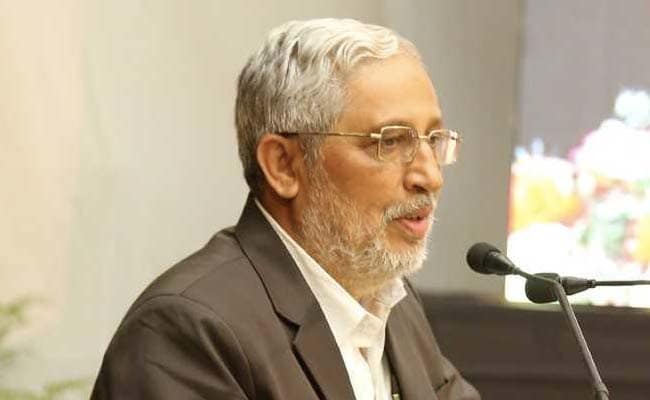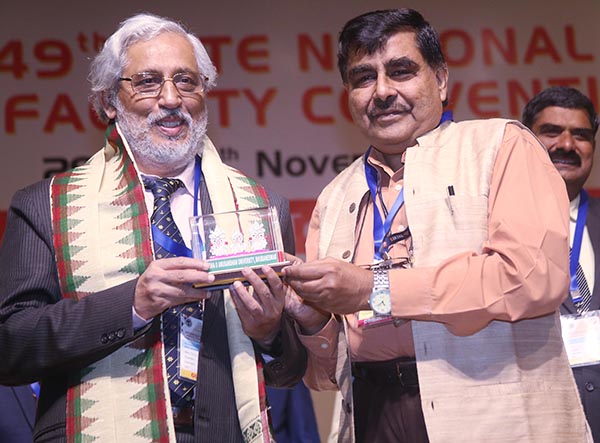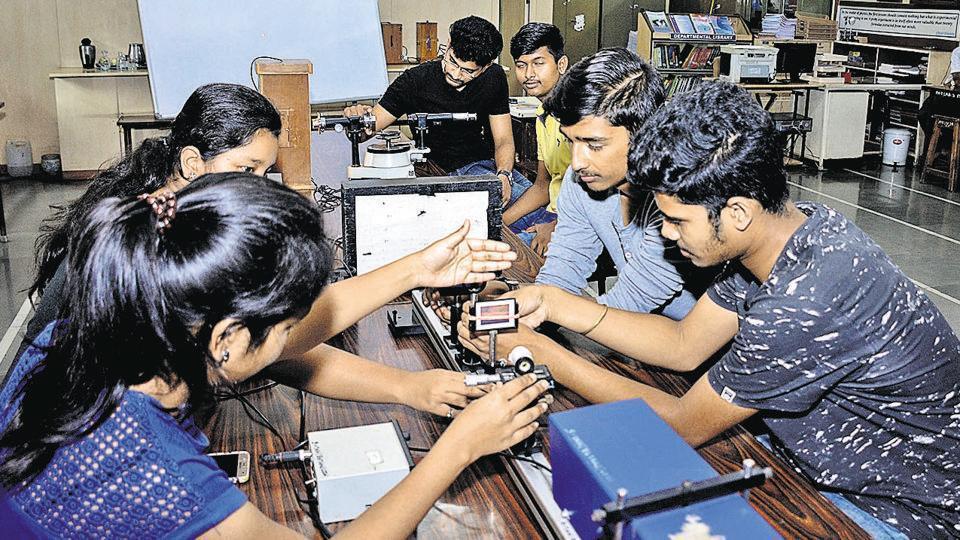OdishaPlus Bureau

Good infrastructure and enrolment of students alone would not be able to ensure quality technical education if the teaching-learning process is not given focused attention, Prof. Anil D. Sahasrabudhe, Chairman of the All India Council for Technical Education (AICTE), said on Friday.
“The process of learning in educational institutions needs to change as there is the need for the teacher to know what to teach to the student and how to do it. The problem is we are not addressing the problems that have been stalking the system,” Prof. Sahasrabudhe said while speaking as the chief guest at the national conference on ‘Crisis in Technical Education’ at the SOA Deemed to be University here.
The two-day conference has been jointly organized by SOA and the Indian Society for Technical Education (ISTE), New Delhi, as part of the 49th ISTE National Annual Faculty Convention.
“We cannot wish away that there is a problem and must find out why this crisis happened,” he said, adding the rote learning system promoted over the years had created this impasse. Teachers don’t appreciate when a student tries his hand at innovation or has a streak of creativity and inquisitiveness and “that is killing education,” he said.
The National Education Policy (NEP), presently in draft form, has all the ingredients to address the issues which had affected technical education in the country and overcome this crisis, Sahasrabudhe said.
Prof. Damodar Acharya, former Chairman of AICTE and Chairman of SOA Advisory Board, who spoke as the guest of honor, said the technical education system in the country was in ‘deep trouble’.
“Exponential growth in its capacity, acute shortage of competent faculty, the inability of the system to produce quality, skilled, competent and employable graduates had seriously eroded the attractiveness of engineering, management, pharmacy, and architecture education,” he said.
Explaining the problem, he said while “the industry is looking for quality and competent manpower, the system has been churning out lakhs of graduates who are not fit to be employed.”

The inaugural program was also addressed by Vice-Chancellor of the Anna University, Chennai Prof. MK Surappa and Vice-Chancellor of SOA Deemed to be University Prof. Amit Banerjee, who were the guests of honor.
Prof. Amiya Kumar Rath, Advisor, NAAC and Dr. PM Khodke, Central Project Advisor, National Project Implementation Unit of the Ministry of Human Resource Development also spoke while Dr. Pratapsinh K. Desai, President of ISTE, presided. Six eminent persons from the world of technical education in India including Prof. MK Surappa and Dr. PM Khodke were inducted as honorary fellows of the ISTE on the occasion.
The others included Prof. Manoj Ranjan Nayak, Founder President of SOA, Prof. Chittaranjan Tripathy, Vice-Chancellor of the Biju Patnaik University of Technology, Dr. Usha Natesan, Advisor, Approval Bureau, AICTE and Dr. Indrajit Patel, Dean of Biral Vishwakarma Mahavidyalaya Engineering College, Anand. Prof. Sahasrabudhe said institutions which took pride in having facilities to educate students from ‘KG to PG’ had greatly contributed to the slide in the standard of education.
He said that the country’s Gross Enrolment Ratio (GER), which stood at 0.7 percent prior to independence had reached 26 percent today of which one-fourth of the students belonged to technical streams. The focus was on quantity but quality had been left out.
“But the NEP will be addressing this aspect,” he said. Stressing the need for curriculum revision to make it relevant to suit the need of the day, he said 40 percent of the jobs available in several domains today would disappear making it imperative for the system to train students accordingly.
The new policy would focus on examination reformation with 30 percent of the questions being picked from the textbooks. “The rest 70 percent of the questions will center around, among other things, innovation and creativity,” he said adding there would be a need for collaboration between industries and technical institutions to turn the situation around.
Prof. Acharya said a system dynamics study had shown that sustainable admission in technical institutions would decline to a level of six lakh from eight lakh by 2025 and would again rise to the level of eight lakh by 2035.
 “Every crisis also presents the opportunity to change and improve. As faculty, we may not have the freedom to select whom to teach but we have the freedom to decide what and how to teach and how to evaluate to produce graduates with the necessary competence and skill to solve problems,” he said.
“Every crisis also presents the opportunity to change and improve. As faculty, we may not have the freedom to select whom to teach but we have the freedom to decide what and how to teach and how to evaluate to produce graduates with the necessary competence and skill to solve problems,” he said.
Prof. Acharya said instead of teaching the fundamentals first and assuming that the student would learn how to apply them to problem solving, the need would be to reverse the order which would be more effective.






















